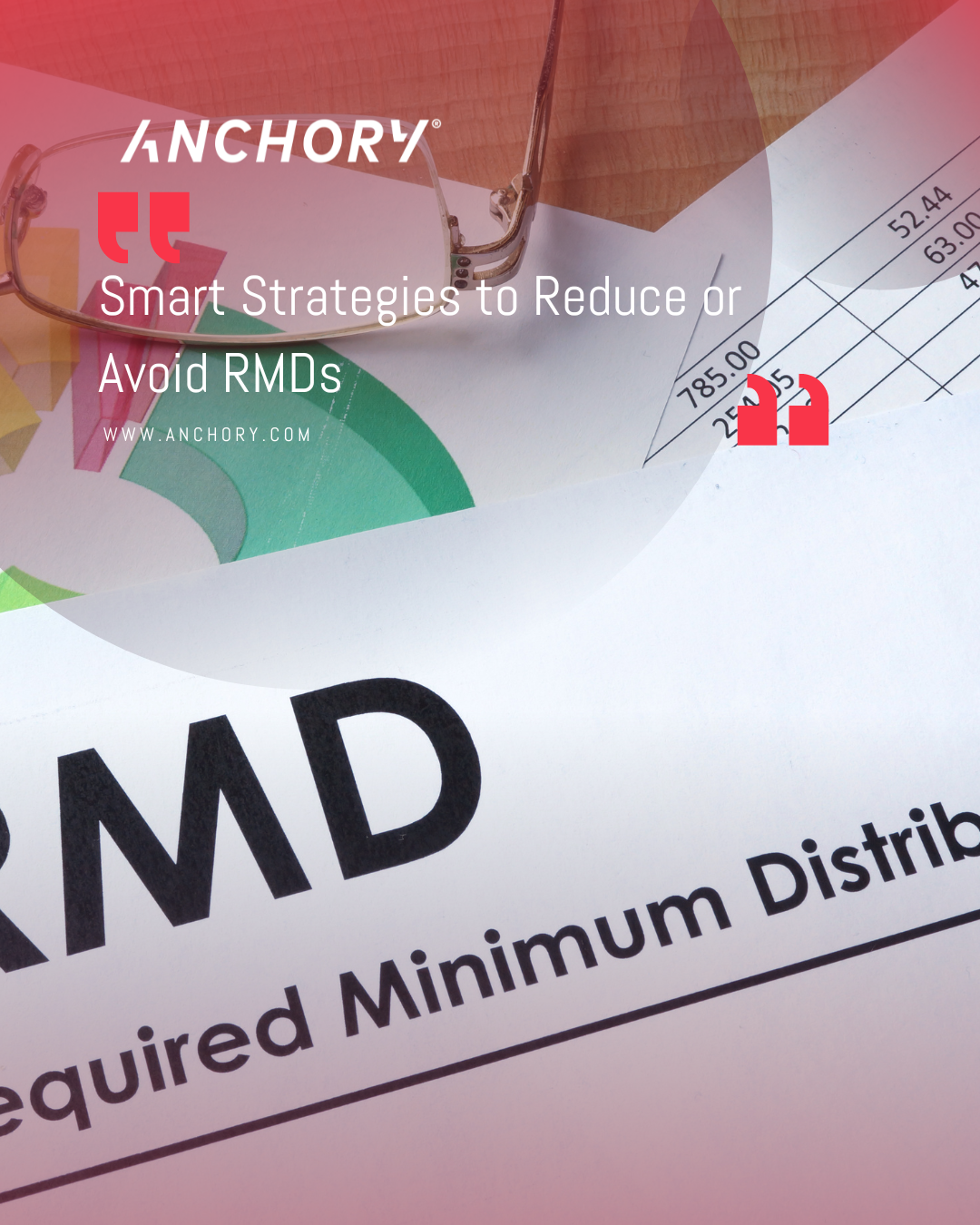Smart Strategies to Reduce or Avoid RMDs
Taxes. It’s hard to think of a more reviled aspect of our government.
9 min read
.jpg) Niels Buksik
:
Jan 23, 2023 8:27:32 PM
Niels Buksik
:
Jan 23, 2023 8:27:32 PM

Retirement planning is a critical aspect of ensuring a secure and comfortable future. Finding the right financial planner to help you navigate the complex world of retirement accounts and investments can be a daunting task. However, with the right information and approach, you can find a financial advisor who will work with you to create a personalized retirement plan that meets your specific needs and goals.
Retirement planning is something that no one should take lightly. After all, your retirement years are meant to be the golden years of your life – full of relaxation and enjoyment after a lifetime of hard work. But without proper financial planning, you could find yourself struggling in retirement instead of living the life you’ve always dreamed about. That’s why it’s so important to find a financial advisor who can help you create a personalized plan for achieving your retirement goals.
Finding the right retirement advisor is an essential step in ensuring that your retirement plan will be successful. Not only can a qualified financial professional help you come up with activities to help build wealth, but they can also guide you through the often-complex world of investments and taxes. A good financial planner should be able to create a custom plan for you that includes strategies for saving, investing, and budgeting – all tailored to meet your individual needs and goals.
A Retirement Advisor is a financial professional who specializes in helping clients save and plan for their future retirement. Retirement advisors look at the big picture of your retirement goals, including investments, income planning, insurance planning, tax management, and more. Retirement advisors work closely with you to create an individualized plan that takes into account all factors related to your retirement. Finding the Right Retirement Planner: When searching for a Retirement Advisor, it’s important to find someone who is experienced and knowledgeable about the specific aspects of retirement planning that are relevant to you. Ask potential planners questions like “what experience do you have in my area?” or “how will my plan impact my current lifestyle?” A good Retirement Advisor should
Retirement advisors can carry any number of financial designations. These various titles describe the training and expertise an advisor has, as well as the types of services they offer. They also usually involve the advisor enrolling in specialized education courses and completing one or more exams. Here’s a breakdown of some retirement advisor certifications you might come across:
Certified financial planner (CFP®)
Retirement income certified professional (RICP)
Chartered financial analyst (CFA)
Certified retirement financial advisor (CRFA)
Certified retirement counselor (CRC)
Retirement management advisor (RMA)
A financial planner is a professional who helps individuals and families make informed decisions about their finances. They provide advice on budgeting, investing, taxes, insurance, estate planning, and other areas of personal finance. Financial planners can also help you create a retirement plan that meets your long-term goals.
Retirement advisors provide a wealth of services that can help you save and prepare for the future. They specialize in areas such as investment management, retirement income planning, insurance planning, tax management and more. Retirement planners are knowledgeable professionals who will ask important questions about your current lifestyle to determine what type of plan is best suited for you specifically. An advisor also has certifications that reflect their training level and expertise when it comes to providing advice on budgeting investments taxes estate plans etc. Additionally, they can keep track of goals set previously while helping with healthcare expenses long-term care Social Security benefits asset allocation beyond retirement accounts real estate or collectibles taxation implications withdrawals payouts, etc., all designed towards ensuring maximum success in reaching those established financial objectives. Here are a few additional items retirement advisors help with:
Help you identify your retirement savings goals and the action steps you’ll need to take to achieve them.
Pinpoint potential gaps in your retirement savings plan.
Offer advice on how to maximize tax-advantaged accounts, such as a 401(k) or individual retirement account (IRA).
Help you devise a strategy for eliminating debt if you’re carrying student loans, credit card bills, a mortgage or other loans.
Discuss how to best plan for healthcare expenses and long-term care needs.
Guide you in choosing an asset allocation that balances risk and reward.
Inform you about products designed to preserve supplemental retirement income, such as annuities and long-term care insurance.
Help you determine where Social Security benefits fit into your overall retirement plan.
Assist with managing the tax implications of retirement account withdrawals and insurance payouts.
Suggest solutions for managing assets beyond retirement accounts, such as real estate or collectibles.
Once you choose a retirement advisor to work with, you’ll speak with them extensively about what your current financial situation looks like, as well as what your goals are for the future. Only then will you and your advisor decide which of the above services is necessary for you.
Retirement advisors provide a wealth of services that can help you save and prepare for the future. They specialize in areas such as investment management, retirement income planning, insurance planning, tax management, and more. Retirement planners are knowledgeable professionals who will ask important questions about your current lifestyle to determine what type of plan is best suited for you specifically. An advisor also has certifications that reflect their training level and expertise when it comes to providing advice on budgeting investments taxes estate plans etc.. Additionally, they can keep track of goals set previously while helping with healthcare expenses long-term care Social Security benefits asset allocation beyond retirement accounts real estate or collectibles taxation implications withdrawals payouts, etc., all designed towards ensuring maximum success in reaching those established financial objectives.
Finding the right financial planner can be challenging. Here are some tips to help you find the best fit:
Research different types of advisors: There are several types of advisors available including fee-only advisors, commission-based advisors, and hybrid advisors (who charge both fees and commissions). Research each type to determine which one best suits your needs.
Ask questions: When interviewing potential advisors, ask questions about their experience, qualifications, services offered, fees charged, etc. This will help you get a better understanding of how they work and if they're the right fit for you.
Check references: Ask potential advisors for references from past clients or colleagues who have used their services before. This will give you an idea of how satisfied people were with their experience working with them.
Compare fees: Fees vary widely among different advisors so it's important to compare them before making a decision. Be sure to ask about any additional fees or charges that may not be included in the initial quote.
One of the first things to consider when looking for a financial planner is their qualifications and experience. A good financial advisor should be a certified financial planner (CFP®) or have a similar professional designation. These certifications demonstrate that the planner has met certain educational and ethical standards and has passed a rigorous exam. Additionally, look for a planner who has experience working with clients in similar life stages and with similar financial goals as you.
Another important factor to consider is the type of services the financial planner offers. Some planners may focus solely on investment management, while others may offer a broader range of services such as retirement planning, tax planning, and estate planning. It is important to find a planner who can provide the services you need to achieve your retirement goals.
When searching for a financial planner, it is also important to consider the planner's investment philosophy. Some planners may advocate for a more aggressive investment strategy, while others may take a more conservative approach. It is important to find a planner whose investment philosophy aligns with your risk tolerance and goals.
It is also important to consider the planner's fee structure. Some planners charge a flat fee for their services, while others charge a percentage of assets under management. Some planners may also charge a combination of both. It is important to understand the fee structure and ensure it aligns with your budget.
One important thing to keep in mind is that a financial planner should be a fiduciary, meaning they are legally required to put their clients' interests ahead of their own. Be sure to ask any potential planner if they are a fiduciary, and look for one that is.
Another key aspect of retirement planning is to understand the different types of retirement accounts available to you, such as 401(k)s, IRAs, and annuities. A good financial planner will help you understand the pros and cons of each account and help you choose the best options for your specific situation.
Finally, when choosing a financial planner, it is important to find someone with whom you feel comfortable and can trust. Your financial planner will be privy to sensitive financial information and will play a key role in helping you achieve your retirement goals. It is important to find a planner who you feel confident in and can communicate openly with.
In conclusion, finding the right financial planner is critical to ensuring a secure and comfortable retirement. By considering the planner's qualifications, services, investment philosophy, fee structure, and trustworthiness, you can find a planner who will work with you to create a personalized retirement plan that meets your specific needs and goals. Remember that a financial planner should be a fiduciary, and be sure to understand the different types of retirement accounts available to you. With the right financial planner, you can feel confident that you are on track to a successful retirement.
The pros of working with a retirement advisor include their expertise and access to specialized knowledge. Retirement advisors are knowledgeable about the different types of retirement accounts, investment options, and tax strategies available, so they can help you make informed decisions and ensure your money is being managed efficiently. Retirement advisors also have access to resources such as market data, financial calculators, and software that can help you achieve your retirement goals. Retirement advisors also provide personalized advice based on your particular needs and objectives.
A major benefit of working with a retirement advisor is their ability to create an effective retirement plan tailored specifically to you. Retirement advisors are trained in creating strategies that are designed to meet your specific financial goals while taking into consideration factors such as age, income level, lifestyle goals, and risk tolerance. Retirement advisors will then use these strategies to build an appropriate portfolio that meets your individual needs over time. Retirement advisors may also be able to guide how best to withdraw from your retirement accounts to maximize the longevity of your savings.
However, there are some potential drawbacks associated with working with a retirement advisor. Retirement advisors typically charge for their services either through commissions or fees for assets under management (AUM). While these fees may seem costly initially, it is important to consider the long-term value that a good advisor can bring by helping you reach your retirement goals faster than you could without one. Additionally, depending on the planner's fee structure or commission agreement they may be incentivized to recommend certain investments or products that aren't necessarily in your best interest. It is important to understand any incentives the planner has when recommending investments or products before making any decisions.
Finally, it is important to remember that no two advisers are exactly alike and many specialize in different areas such as portfolio management or tax planning. It is important to weigh all factors carefully when selecting an individual adviser and compare multiple advisers before making a final decision. Ensure you feel comfortable communicating openly with them about all aspects of your finances and make sure their fee structure is affordable for you in the long run.
Retirement planning is a critical component of financial security for anyone looking to retire. Retirement plans are the vehicles used to save and invest money, so it's important to understand the different types of retirement accounts available to make informed decisions about how best to plan for your future. Retirement plans come in various forms such as employer-sponsored 401(k)s, IRAs, Roth IRAs, and more. Each type of account has its own unique set of rules and regulations that should be considered when selecting which one is right for you.
401(k) plans: These are employer-sponsored plans that allow employees to save for retirement through pre-tax payroll deductions. Employers may also offer matching contributions to employees who participate in the plan.
Individual Retirement Accounts (IRAs): These are personal savings plans that allow individuals to save for retirement on a tax-deferred basis. There are two main types of IRAs: traditional and Roth.
Traditional IRA: Contributions to traditional IRAs may be tax-deductible, and the funds grow tax-deferred until withdrawal in retirement. Withdrawals made before age 59 1/2 may be subject to a 10% penalty.
Roth IRA: Contributions to Roth IRAs are made with after-tax dollars, but the funds grow tax-free, and withdrawals in retirement are tax-free. There are income limits to contribute to a Roth IRA.
Simplified Employee Pension (SEP) plans: These are employer-sponsored plans that are similar to traditional IRAs and are designed for small businesses and self-employed individuals.
Profit-sharing plans: These are employer-sponsored plans that allow employers to make contributions to employees' retirement accounts based on the company's profits.
Defined Benefit plans: These are employer-sponsored plans that guarantee a specific benefit to employees at retirement. The benefit is determined by a formula based on factors such as the employee's salary and length of service.
Annuities: These are contracts between an individual and an insurance company, in which the individual makes a lump sum payment or a series of payments and the insurance company agrees to make payments to the individual at a later date.
Cash Balance plans: These are defined benefit plans that are similar to 401(k) plans in that they have individual accounts for each employee.
Government plans: These include Social Security, which isa federal program that provides benefits to eligible individuals, and state and local pension plans, which are sponsored by government employers.
It's important to note that the list above is not exhaustive, and there are other types of retirement plans and savings vehicles available depending on your specific needs and goals. It's always wise to consult with a financial advisor to determine the best option for you.
In summary, there are both pros and cons associated with hiring a financial advisor or retirement financial planner but ultimately it comes down to finding someone who can provide personalized advice designed specifically for you while taking into account factors such as life events, lifestyle goals, age, income level, risk tolerance, retirement goals, health care, and other factors. Due diligence in researching their qualifications and fee structure as well as asking questions regarding incentives for particular investments or products before making a decision can help ensure you find the right retirement advisor for you who will help guide you toward achieving your financial goals while providing overall financial security during retirement years !

Taxes. It’s hard to think of a more reviled aspect of our government.

Are you tired of living paycheck to paycheck? Do you want to achieve your financial goals but don't know where to start? Financial planning is the...

Certified Financial Planners (CFP®) are professional financial advisors who have met certain education, experience, and ethical requirements set by...